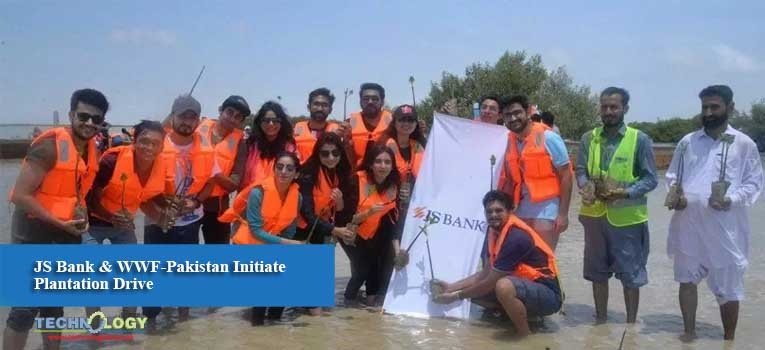To mitigate the impact of climate change and increase tree cover, WWF-Pakistan and JS Bank launched a drive to plant 100,000 mangrove saplings along the coastal belt of Baluchistan.
 This campaign aims to mitigate climate change, regulate water cycles and increase green cover across the country.
This campaign aims to mitigate climate change, regulate water cycles and increase green cover across the country.
During the launch event, saplings were planted at Miani Hor which is a hotspot of mangroves, marine dolphins and various species of coastal birds.
Basir Shamsie, President & CEO JS Bank stated, “JS Bank has long had a strong focus on environmental protection and conservation. By partnering with renowned organizations, we have successfully worked to mitigate decreasing tree cover, strengthen communities dependent on natural resources and improve the food security chain.” He went on to add that JS Bank had also implemented the WWF Green Office protocol at its head office to reduce waste and conserve resources.
Speaking on the occasion, Dr. Babar Khan, Regional Head Sindh and Balochistan WWF-Pakistan said that Pakistan is recognized as having the 7th largest mangrove forest in the world.
These forests are one of the primary features of coastal ecosystems and are widely spread across the coast of Pakistan. He said that Miani Hor covers a large area which comprise of dense mangrove forests.
This is the only area in Pakistan where three species of mangroves, such as Avicennia marina, Rhizophora mucronata and Ceriops tagal occur naturally.
These mangroves provide an ideal habitat for growth of marine plants and animals. He also shared that mangroves are the first line of defence against cyclones, strong surges, tsunami and other natural calamities impacting the coastal areas of Pakistan.
This plantation campaign is a joint initiative of WWF-Pakistan and JS Bank with the aim to increase mangroves forest cover with active participation of different stakeholders mainly local communities and passionate individuals.